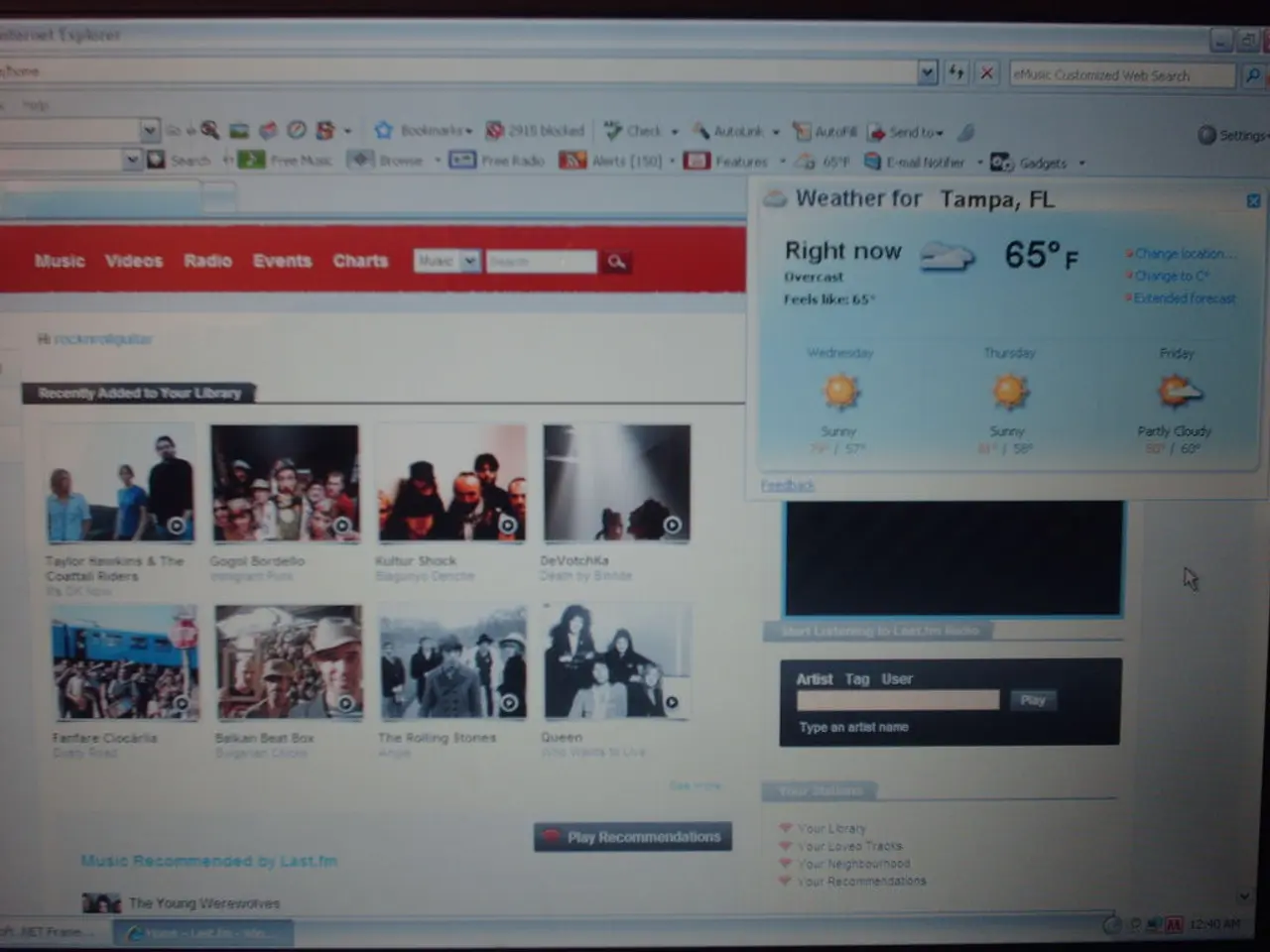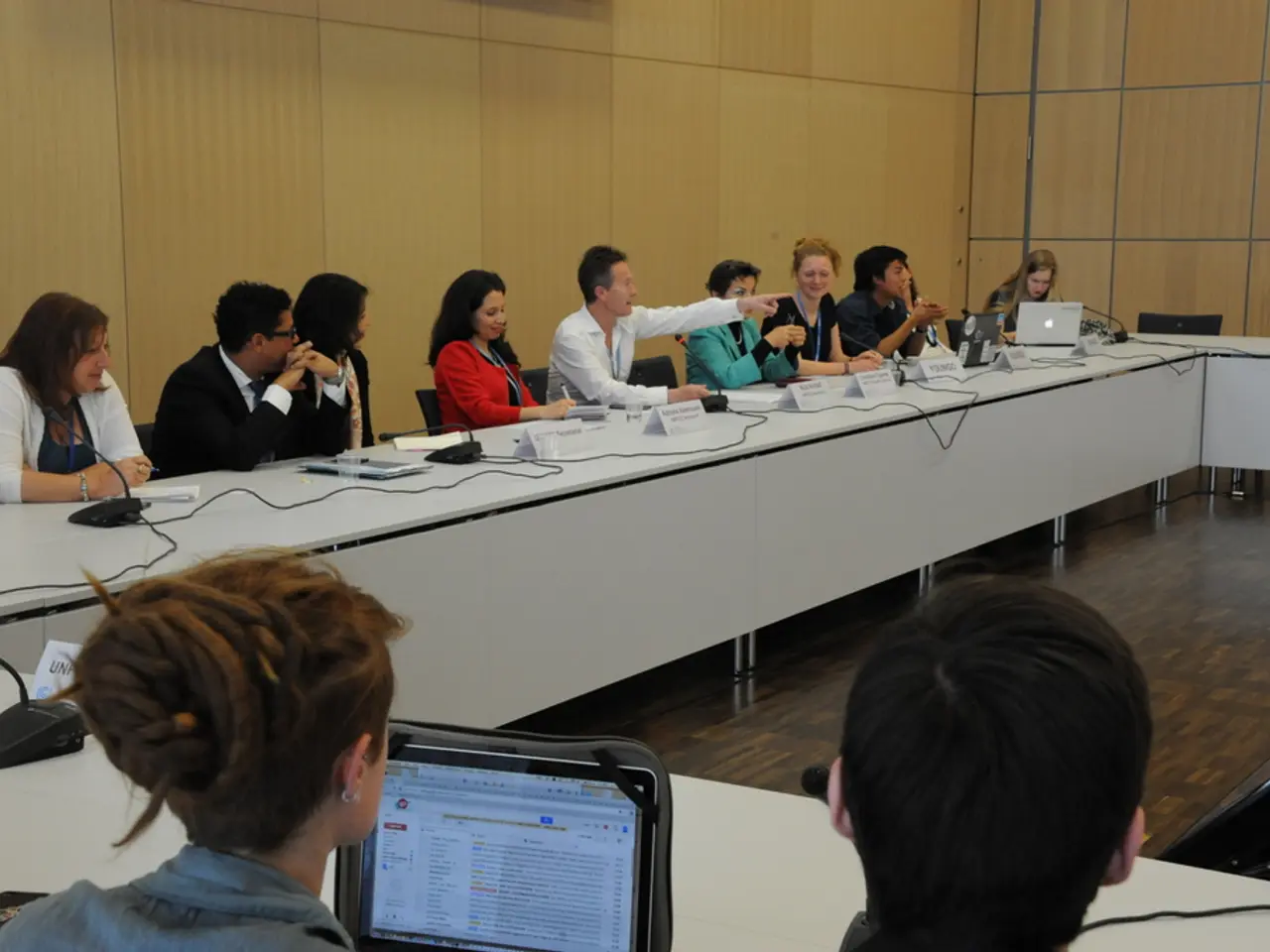Creativity Departments of Media Agencies Establishing Expanding Practices to Address Client Requirements
In the ever-changing media landscape, the role of media agencies in creative guidance is undergoing a significant transformation. No longer merely buyers or planners of media space, these agencies are increasingly becoming central players in the creation of hyper-personalized, immersive brand experiences.
One of the key defining factors of this evolution is the bridging of creativity and technology. Media agencies are now intertwining art, commerce, and code to craft campaigns that resonate deeply across both physical and digital environments. This includes orchestrating "agentic media strategies" and curating "phygital" (physical + digital) experiences that respond dynamically to cultural trends and consumer mindsets.
Data has also emerged as a creative asset for media agencies. With sophisticated data capabilities, they are able to leverage insights to craft highly targeted and adaptive narratives, moving away from generic campaigns. AI-powered tools and real-time data flows enable them to deliver personalized content at scale, ensuring relevance and engagement in a crowded marketplace.
Strategic transformation is another crucial element of media agencies' new role. They are shifting from purely creative roles to strategic partners, guiding brands on timing, channel mix, and campaign structure. This strategic guidance is underpinned by data analytics, enabling agencies to justify creative decisions with measurable business impact and optimize campaigns continuously.
The rise of AI and digital transformation means media agencies must prepare their operations to be "AI-ready," structuring data and workflows so that creative excellence translates into business results. This demands new operational clarity and alignment with CMOs and other leaders, positioning agencies as vital contributors to brand strategy and growth.
In sectors like fashion and luxury, media agencies are incorporating cultural sensitivity and ethical values such as sustainability and transparency into their creative guidance. This approach helps brands connect authentically with younger, values-driven consumers.
The changing industry presents opportunities for media agencies to expand their creative services. The media industry is experiencing a shift with fewer agency of record relationships, leading to more clients seeking creative guidance from their media partners. The shift is also leading to a broader range of partners for creative services, with creative agencies, media agencies, and publishers all potential partners.
The digital ecosystem is a key focus area for media agencies, with proliferating digital channels opening up creative budgets for various partners. Media agencies, due to their data expertise, are well-positioned to secure more creative dollars. However, the media industry is being challenged to clarify the role of a media agency, with some questioning if creative services are part of a media agency's role. Nevertheless, media agencies may now serve as partners for creative services, in addition to their traditional roles.
In summary, media agencies' creative guidance today is data-informed, technologically empowered, and strategically integrated. They act as orchestrators of complex, personalized storytelling ecosystems that leverage data insights to shape creative narratives that are not only visually compelling but also commercially effective and culturally resonant.
Media agencies, with their data capabilities, are now bridging positions in both creative and finance areas, using technology to generate personalized and adaptive brand narratives. This strategic shift enables them to create agentic media strategies and phygital experiences that respond dynamically to business climates and consumer mindsets.
In the ever-evolving business landscape, media agencies are striving to position themselves as vital contributors, offering creative services alongside their traditional roles. This expansion is necessary to secure creative dollars in the digital ecosystem and maintain relevance amidst questions about the role of a media agency in the creative process.




